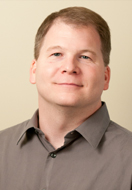


 When yet another Christian celebrity fails to give a straight answer on a hot-button moral issue, it reveals a deeper problem.
When yet another Christian celebrity fails to give a straight answer on a hot-button moral issue, it reveals a deeper problem.
Back in September, an article in Rolling Stone announced, “A Christian Singer is Bigger than Drake and Arianna Grande this Week.” That singer is Lauren Daigle, the Grammy-nominated singer-songwriter whose brilliant voice, soulful style, and hope-filled lyrics has won fans well beyond the Contemporary Christian genre. She’s becoming a regular on talk shows and in national publications, and has officially earned the coveted status of “crossover artist” at just 27 years old.
But with broader appeal comes a challenge: maintaining one’s identity, not as a “Christian singer,” but as a Christian. Sadly, it’s a challenge many Christian celebrities have struggled to handle.
Last week during an interview with iHeart radio, Daigle was asked, given her recent appearance on the Ellen DeGeneres show, whether she believes homosexuality is a sin.
“I can’t honestly answer that,” Daigle replied. “I have too many people that I love, and they are homosexuals.”
She went on to explain that since she’s not God, she can’t say one way or another. Instead, people should just “read the Bible and find out” for themselves.
Now let me say from the beginning here I understand how hard this high-pressure situation can be. For a young woman like Daigle with a skyrocketing career, calling homosexuality a sin in a public forum could mean closing a lot of doors and alienating a lot of fans. There’s a real cost that comes with taking a stand for the Christian view of sex and marriage. Deciding to pay that price in a split second with a microphone shoved in your face is something better-trained theologians and pastors have failed to do.
But this whole story reveals something else—the deep crisis of authority plaguing evangelicalism right now. First, we should be past the point of answering this question, because the Christian view of sex and marriage should be so clear and our commitment to it should be so well-known by now that there should be no longer any point in asking the question!
The reason it still comes up is that too many evangelicals, like mainline Protestant liberals before them, have sounded an uncertain note on this topic. I’m not just talking about those very few pastors and writers who’ve reinvented their faith to accommodate LGBT theology. I’m talking about the epidemic fear to even broach the topic in so many evangelical churches and ministries, and how we’ve avoided the topic especially with our young people, instead wrongly catechizing them to look to their emotions for truth instead.
Neither the Bible nor nearly two millennia of Christian teaching are at any level ambiguous about homosexual behavior. Numerous passages in the Old and New Testaments condemn it, along with any sexual behavior outside of God’s good design for marriage between a man and a woman. No one in Christian history ever doubted this until about five minutes ago. There is no room for disagreement on the point.
For Daigle or any other Christian for that matter to publicly say, “I don’t know whether homosexuality is a sin” is like saying “I don’t know whether stealing or worshipping false gods are sins.”
And that brings up a second angle on the church-wide authority problem we face. When theological training is de-prioritized and even avoided, then our celebrities become our experts. Yes, Daigle should know better. But we should know better than to hold celebrities up as theological authorities.
And finally, we need to ask ourselves: How would we respond in Lauren Daigle’s situation? You might think, well, I’m not a celebrity. But it’s not just celebrities that will be faced with this question in awkward situations.
What will you say when someone with the power to seriously damage your career asks you what you think about a culturally popular sin? For that matter, what will you say at Christmas dinner when that one relative—maybe a relative who identifies as gay—asks you the same question?
There are no easy answers in that moment. But that doesn’t mean there are no right answers.
Come to BreakPoint.org and click on this commentary, and we’ll link you to some resources that will help you answer this tough question boldly and lovingly, no matter who’s asking.
Have a Follow-up Question?
Want to dig deeper?
If you want to challenge yourself as many others have done, sign up below.














